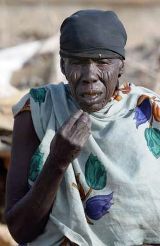Give more to Darfur, NGOs tell Japan, France, Italy
By Andrew Cawthorne
LONDON, Sept 9 (Reuters) – Rich nations like Japan, France and Italy must be more generous in funding humanitarian relief for Sudan’s Darfur region, aid agencies said on Thursday.
 A coalition of British-based charities rapped Japan for giving only $6 million in bilateral aid so far in 2004, France $9.6 million and Italy $10.8 million.
A coalition of British-based charities rapped Japan for giving only $6 million in bilateral aid so far in 2004, France $9.6 million and Italy $10.8 million.
“These are some of the richest countries in the world and they have been among the poorest donors,” said Barbara Stocking, British director for one of the charities, Oxfam, working with refugees and victims of violence from Darfur.
“While humanitarian agencies struggle to cope with the overwhelming needs of the millions affected in this region, our difficulties are made worse by the lack of urgency of some rich nations in their response to the problem,” she added.
Other groups supporting the statement were the International Save the Children Alliance, CARE International and Caritas Internationalis.
They said Japan, France and Italy’s record compared unfavourably with U.S. and British aid to the region, where Arab militia have been terrorising African villagers.
Washington was giving $206 million in the 2004-05 financial year, while Sudan’s former colonial ruler Britain was giving 53 million pounds ($94.10 million) over that period, Oxfam said.
“By the end of August the United Nations reported it had only received just over half of the money it needs to help those who have fled the violence in Darfur”, Stocking added.
“If donors like France, Italy and Japan do not provide that money, thousands more people are likely to die.”
The aid agencies said hundreds of thousands of people from Darfur were facing starvation and disease on both sides of the Sudan-Chad border. “A human tragedy is unfolding,” they said.
The United Nations says more than a million people have fled their homes in the past 19 months for fear of attack by the militias, known as Janjaweed.
It estimates 50,000 people have been killed.
The violence escalated after rebels began an uprising in February 2003 after years of low-level fighting between mainly African farmers and Arab nomads over scarce food and water.
